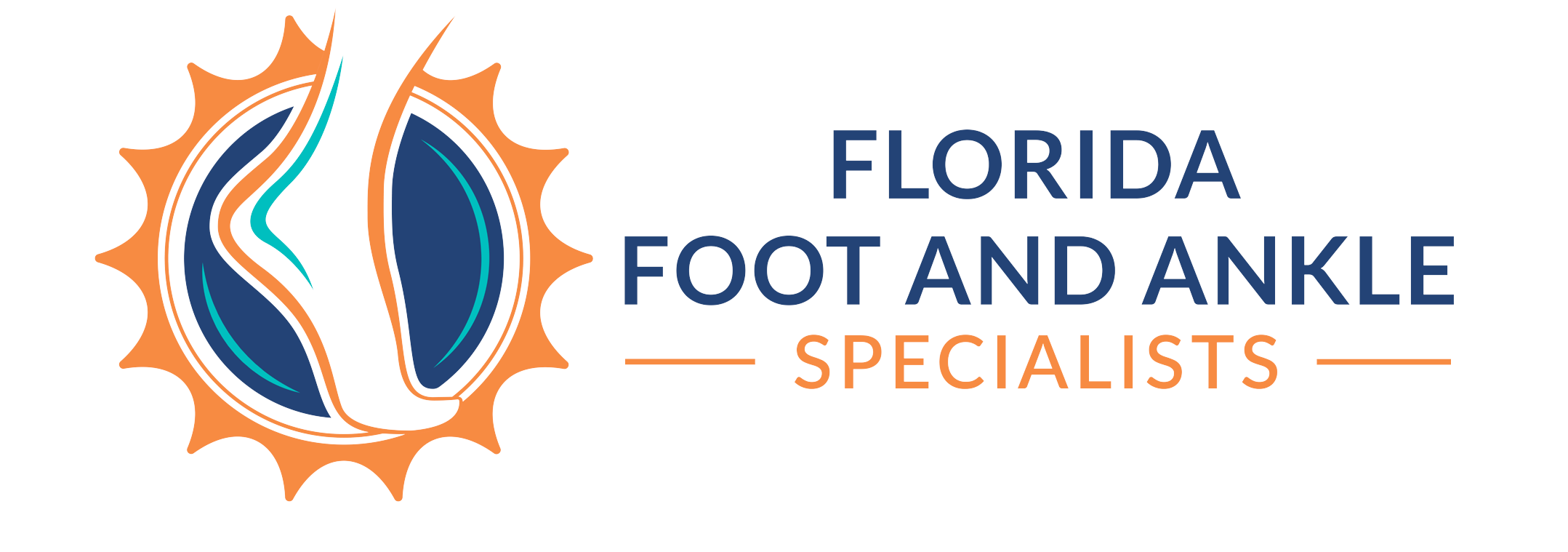
Florida Foot and Ankle Specialists are committed to delivering exceptional foot and ankle care for soccer related injuries. Our board-certified podiatrist has undergone additional fellowship training to expertly diagnose and treat a wide range of disorders affecting the foot, ankle, and lower leg. From routine preventive care to complex reconstructive surgery, we use the most advanced treatments to ensure our patients achieve optimal outcomes.
We understand the unique demands that soccer places on your feet and ankles. Our team is well-versed in treating a variety of soccer-related injuries, from common issues like ankle sprains and plantar fasciitis to more complex conditions such as stress fractures and Achilles tendonitis.
Utilizing advanced diagnostic tools, laser foot therapy and personalized treatment plans, we aim to get you back on the field as safely and swiftly as possible. With specialized care, rehabilitation programs, and preventive strategies tailored to soccer players, we ensure that you receive comprehensive care designed to enhance your performance and prevent future injuries.
Our top priority is your health, delivered with individualized and compassionate care. We aim to create an environment that attentively meets your needs, enabling you to recover swiftly with the highest standards of quality care. Should you have any questions or concerns about your foot or ankle condition, please don’t hesitate to contact us. We’re here to help!
Soccer Injuries
Whether you are a competitive player or playing for fun, soccer can cause numerous types of injuries and problems for your feet and ankles. Here are some of the most commonly asked questions and and answers about soccer injuries and sports medicine.
Q: What are some common injuries that soccer players might experience?
A: Whether you are a competitive player or playing for fun, soccer can cause numerous types of injuries and problems for your feet and ankles. Some common injuries include:
- Ankle sprains
- Chronic ankle instability
- Ankle fractures
- Osteochondritis dissecans
- Other trauma and fractures
- Stress fractures
- Achilles tendonitis
- Achilles rupture
- Jones fractures
- Fungal nails
- Athlete’s foot
- Plantar fasciitis
- Ingrown nails
Q: What are the signs and symptoms of a sport foot injury?
A: The signs and symptoms of a sport foot injury can vary depending on the specific type of injury sustained. Common indicators include:
- Pain or discomfort in the foot or ankle, particularly during or after physical activity.
- Swelling and bruising around the affected area.
- Difficulty bearing weight or walking normally.
- Visible deformity or unusual shape of the foot or ankle.
- Reduced range of motion or mobility.
- A popping or snapping sound at the time of injury.
Q: What are the signs and symptoms of a sport-related foot fracture?
A: A sport-related foot fracture can exhibit several signs and symptoms, such as:
- Sudden, intense pain in the foot that worsens with activity.
- Swelling and bruising at the site of the fracture.
- Difficulty or inability to bear weight on the affected foot.
- Visible deformity or abnormal position of the foot.
- Tenderness to touch, particularly over a bone.
- Possible numbness or tingling in the immediate area.
Q: What should you do immediately after a suspected foot injury or fracture?
A: Immediate actions to take following a suspected foot injury or fracture include:
- Rest: Cease any activity that puts strain on the affected foot to prevent further injury.
- Ice: Apply an ice pack wrapped in a cloth to the injured area for 15-20 minutes every hour to reduce swelling.
- Elevation: Raise the foot above heart level whenever possible to decrease swelling and pain.
- Seek Medical Attention: Consult a Specialist as soon as possible for a thorough evaluation and appropriate treatment. Avoid self-diagnosing or continuing to play without professional advice.
Q: Why is it important to see a Foot and Ankle Specialist for these injuries?
A: It is important to see a Foot and Ankle Specialist as soon as possible for proper evaluation and treatment of your condition. Early diagnosis and specialist care can help prevent further damage and facilitate a quicker, more effective recovery.
This site does not contain or provide medical/health advice. The medical/health information is provided for general information and educational purposes only and is not a substitute for professional advice. Accordingly, before taking any actions based upon such information, we encourage you to consult with the appropriate professionals. The use or reliance of any information contained on this site is solely at your own risk.
